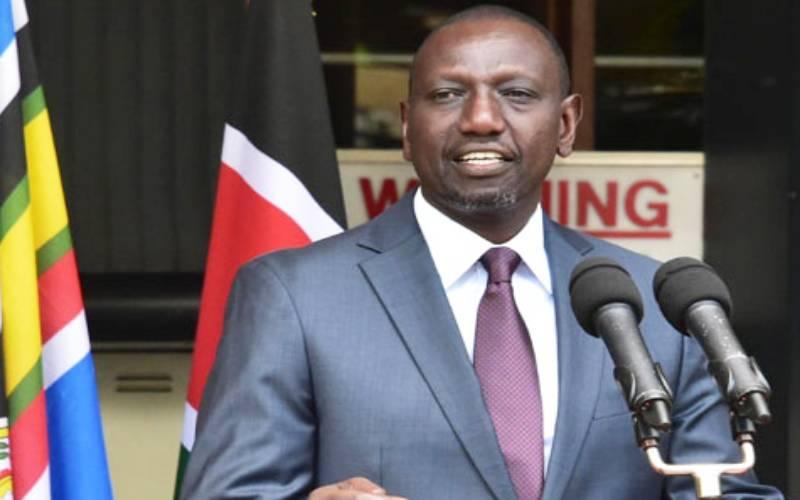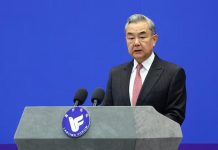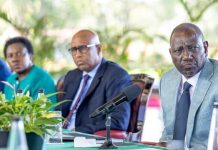By Faridah N Kulumba
Africa-Press – Kenya. Kenyan presidential aspirant and second in command Willam Ruto on 16 June 2022, questioned his opponent the head of political alliance Azimio la Umoja (aspiration to unite) presidential candidate Raila Odinga’s academic credentials.
The elections
Kenyans are set to cast their votes on 9th August this year. According to the election polls, the hot race is between the number two in power Deputy President William Ruto, and the leader of the opposition Raila Odinga for the Orange Democratic Movement (ODM) who was endorsed by Kenyan President Uhuru Kenyatta.
Show the proof
Deputy President Ruto believes that the former Prime minister Raila’s academic credentials are questionable and he is a conman. Ruto challenged Raila to give proof of where he obtained his degree, his classmates, and who taught him.
Assertiveness
DP Ruto insisted that the Azimio la Umoja One Kenyan Alliance candidate cannot prove what he studied, but claims to have a degree. To add salt to an injury other people who have worked with Raila in previous elections like senator for Bungoma Moses Wetang’ula said they never saw his certificate.
The sparks
DP Ruto started questioning Raila’s academic qualifications after secretary-general of United Democratic Alliance (UDA) Veronica Maina poked holes into Raila’s academic credentials, saying that qualifications for public office holders need to be looked at from a wider public view.
Confirmation
However, on 15th June this month, the Kenyan Electoral and Boundaries Commission (IEBC) confirmed that candidate Raila met all the requirements and is qualified to be the next president of Kenya. According to the electoral body’s Chief Executive Officer (CEO) Hussein Marjan, the IEBC did its due diligence and was satisfied before clearing Raila to vie for the country’s top seat.
Azimio coalition
In March 2022, the ruling party Jubilee, the opposition party ODM, and other political groups joined forces ahead of general elections in August. Kenyan President Uhuru Kenyatta reiterated his support for former rival Odinga before a cheering crowd in Nairobi. This was proof to show that the two leaders buried the hatched and they were ready to take Kenya to the next level.
The endorsement
President Kenyatta while endorsing his former rival Raila 77, to be the Kenyan fifth president said “We have chosen Raila Odinga,” he informed Kenyans under the banner Azimo la Umoja meaning Quest for unity. The official endorsement brought together two of Kenya’s top political dynasties, who have opposed each other at the ballot box since 2017.
The hustler and the project of the system
In October 2021, Kenyan Deputy President Ruto said the 2022 presidential race was framed between him as the Hustler of the Nation, and the ‘project of the system’ referring to the opposition leader of ODM Raila as the government project. Ruto expressed displeasure at President Kenyatta’s decision to back Raila for the presidency instead of him, vowing to defeat Raila just like he was defeated by Jubilee in the last two general elections.
Election violence traits in Kenya
Elections have been along ethnic lines in many Kenyan communities and have been witnessed in several elections. Between 2007 and 2008, political violence, and economic and humanitarian crises erupted in Kenya after former President Kibaki was declared the winner of the presidential election held on December 27, 2007. These elections were fiercely disputed and triggered widespread violence throughout the country. This was the most violent crisis that had hit Kenya since the Mau-Mau uprising. From the general election day and signing of the power-sharing agreement to 28 February 2008, Kenya was on the brink of civil war. In only two months, over a thousand people were killed and about 350,000 were forced to move around in search of refuge (Karabo, 2008).
Subsequent reports point to almost 1,500 deaths and nearly 700,000 people internally displaced due to post-election violence.
All eyes are on Kenya’s August elections
Although there no much violence after the victory of the Jubilee Alliance in the March 2013 elections, with a tightly contested vote (with Jubilee avoiding a run-off by less than 1 percent) and yet again evidence of voting irregularities (Gettleman, 2013), the losing party and Kenyans turned to the courts instead of guns. However, it may not represent a trend nor the overcoming of the drivers of conflict but instead, a belief in the credibility (though fragile) of the institutions created or reformed under the new Constitution. However, many challenges still remain unresolved. And now all eyes are on Kenya to see what will happen during the August 2022 general election.
For More News And Analysis About Kenya Follow Africa-Press






